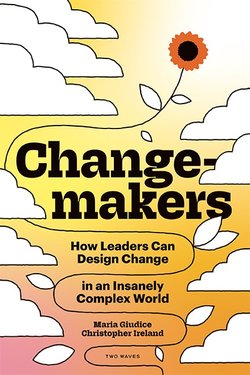Summary
(Originally titled “Making Uber More Efficient through Informed International Insights”) Every design decision has the potential to include or exclude customers. Global Research emphasizes the contribution that understanding user diversity makes to informing these decisions, and thus to including as many people as possible. User diversity covers variation in capabilities, needs and aspirations. At Uber, the Global Scalable Research program is intended to influence product teams at HQ and around the world, to design and test in global regions: currently Mexico, India, Brazil. In this talk, I’ll discuss how we use Global Research to prioritize what product teams really need to build well and understand if their designs have relative ease of use that translates well to non-US users. Our Global Research priorities addresses some of the most challenging problems facing our global users today.
Key Insights
-
•
Empathy must be a baseline for any job focused on designing for global reach.
-
•
Recognizing one's own privilege is crucial to avoid the 'nobility complex' in product design.
-
•
Localized understanding can significantly impact product success and profitability.
-
•
Quick fixes often lead to misunderstandings about user needs.
-
•
Design is fundamentally about problem-solving, not just aesthetics.
-
•
Incorporating diverse perspectives can unveil new opportunities and enhance user experience.
-
•
Companies like Uber need to test products in various regions before global launch to understand real user contexts.
-
•
The integration of UX research from the start helps to prevent bias in product development.
-
•
Scaling requires being mindful of local cultural practices and user behaviors.
-
•
Understanding local resilience strategies can lead to better design solutions, especially in disaster-prone areas.
Notable Quotes
"The roof's thatch might be old-fashioned, but it's better than any AC you could install."
"We need to redesign with context; a flat roof isn't always better."
"Empathy has become a buzzword, but is it enough for scaling?"
"To scale, you must incorporate UX research for global customers from day one."
"When you think you know the answer, consider the perspectives you might be missing."
"If you put garbage in, garbage comes out – this applies to our data and our design."
"Our solutions can turn helpful into harmful if we ignore diverse voices."
"We noticed a five to twenty times loss in profits due to misunderstanding local contexts."
"Designing without diversity leads to products that don't truly resonate with users."
"If design only serves the privileged, we limit our own market potential."
















More Videos

"It's important to think about what you tolerate that other people don't."
Ellen ChisaThe Values of Design
November 29, 2023

"We can work to create a more equitable world by disrupting the status quo, not merely serving it."
Sheryl CababaLiving in the Clouds: Adopting a Systems Thinking Mindset
June 6, 2023

"Language can redefine the boundaries of how we think about the work that we do."
Jorge ArangoDesign as an Antidote to VUCA
May 9, 2019

"We have to think about things in lots of different ways and find entry points."
Deanna ZandtThe Unspoken Complexity of “Self-Care” with Deanna Zandt
July 21, 2022

"Empathetic relationships are as crucial to service delivery as automation."
Jeff SussnaWhat DesignOps Can Learn From DevOps
November 6, 2017

"Systemic problems can't be solved with surface-level solutions."
Sandra CamachoCreating More Bias-Proof Designs
January 22, 2025

"Empowering people is crucial; as a leader, it's about enabling them to conduct valuable research."
Anna Avrekh Dr. John Pagonis Klara Pelcl Sina SchreiberExpert Panel: Leading in and with Research
March 10, 2022

"It was great to be here. I'm excited to share what I've learned in using the repository."
Taylor Jennings Joe Nelson Alex KnollRepository Retrospective: Learnings from Introducing a Central Place for UX Research
March 9, 2022

"We must not be stopped by a lack of confidence; prototype our ideas with real people."
Mitchell BernsteinOrganizing Chaos: How IBM is Defining Design Systems with Sketch for an Ever-Changing AI Landscape
September 29, 2021
















